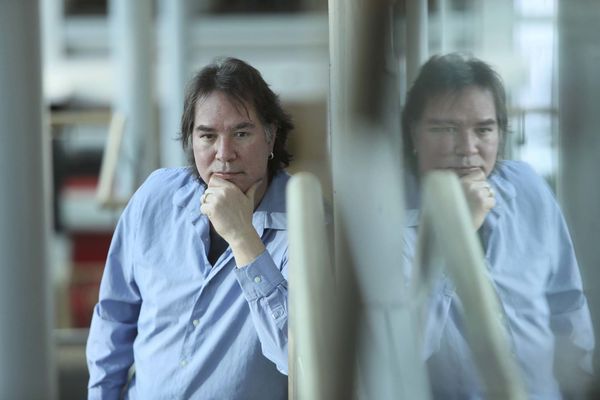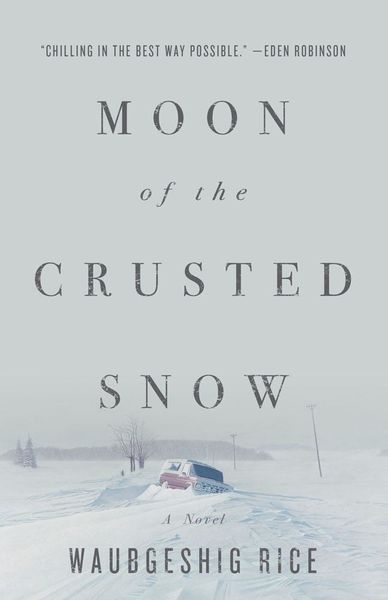In Praise of Editors
By Waubgeshig Rice
I believe the most important relationship in publishing is between the author and the editor. It’s a fundamental partnership that turns ideas into prose and drafts into polished works. When the editing process is based on trust, respect, humility, and a common goal, great books can happen. An editor is there to help and improve an author’s work, and I have benefited immensely from this working relationship over the course of my literary career. I’ve learned some key lessons from editors that continue to enhance my writing and overall fiction practice.
I entered the publishing world a little more than a decade ago without much of a formal literary background. I’d worked with many editors in different capacities as a journalist, but never to the degree of fine-tuning a fiction manuscript. As I soon learned, it’s a massive undertaking that requires patience, collaboration, humility, and dedication. As a big sports fan, I easily equated it with a coach/athlete dynamic; one encourages and enhances and the other practices and performs. Of course, editing a manuscript goes beyond that simple analogy, but I was grateful early on for being pushed to make my writing the best it could possibly be.
Perhaps most essentially, the editor is a seasoned extra set of eyes on a work-in-progress. As a young and aspiring author working on my first collection of short stories, I really appreciated that experience and expertise. When Theytus Books offered to publish Midnight Sweatlodge, they paired me with editor Jordan Wheeler. It was a very exciting prospect for me; I read his collection of novellas called Brothers in Arms when I was a teen on the rez, and it blew me away. It was one of the first times I saw Indigenous representation in literature, so working with him on my first book was pretty much a dream come true.
Jordan taught me about that authentic, unapologetic voice. He encouraged me to be proudly Anishinaabe in my prose, and to not scrub or sanitize the essence of my identity as storyteller. As a result, I was able to hone my narrative voice, and the lessons he taught me through that process continue to emerge in the fiction that I write today. He showed me how to bring Indigenous people together through prose by speaking my truth.
Then, my second editor in fiction helped me utilize literary devices and concepts to tell a better story on the page. Adeena Karasick edited my first novel Legacy, also published by Theytus. The first draft was heavy on expository dialogue, and Adeena really embedded the idea of “show, don’t tell” in my emerging authorial mind. She also knew how crucial the land of Anishinaabe territory was to me and the story, and she encouraged me to place the reader in its beauty as much as possible.
Your CanLit News
Subscribe to Open Book’s newsletter to get local book events, literary content, writing tips, and more in your inbox
While my first two books were about the unique experiences of coming-of-age in an Anishinaabe First Nation, my third book and second novel was about an event in a specific genre. Moon of the Crusted Snow is often described as post-apocalyptic or dystopian, and as such, an end-of-the-world story like it needs a good pace. That’s what editor Susan Renouf of ECW Press expertly guided me to do. Again, the first draft was longer and slower, and she helped me pare back the excessive bits to make it more thrilling. We cut some 15,000 words in the process, to the benefit of the overall story.
Susan also encouraged me to let the Anishinaabemowin language in the story stand proudly and distinctly. And she always wanted to remain respectful to the cultural elements in the story as a settler. So she deferred to me in every instance of authentic Anishinaabeg inclusion. It was very reassuring and heartwarming to be trusted in that way.
And now as I prepare for the next drafts of my forthcoming novel, Moon of the Turning Leaves, I begin a new editorial journey with Rick Meier at Penguin Random House. Although our editing process is just getting underway, we have worked together in developing this story for more than a year, and his guidance and expertise have been monumentally influential. I’ve already learned a lot from him, and there will no doubt be many more invaluable lessons to come.
I’ve been very fortunate to work with four very skilled and generous editors for four fiction titles. They have challenged, comforted, and empowered me on this writing journey. I encourage all aspiring and emerging writers to enter their editorial partnerships with an open mind and heart. Your editor is your advocate, coach, and champion. And with the right working partnership, you will create great things.
The views expressed by Open Book columnists are those held by the authors and do not necessarily reflect the views of Open Book.
Waubgeshig Rice is an author and journalist from Wasauksing First Nation on Georgian Bay. He has written three fiction titles, and his short stories and essays have been published in numerous anthologies. His most recent novel, Moon of the Crusted Snow, was published in 2018 and became a national bestseller. He graduated from Ryerson University’s journalism program in 2002, and spent the bulk of his journalism career at CBC, most recently as host of Up North, the afternoon radio program for northern Ontario. He lives in Sudbury, Ontario with his wife and two sons.






